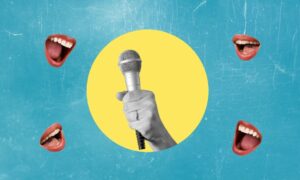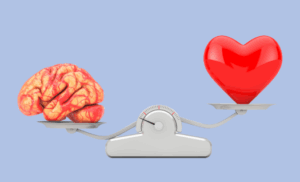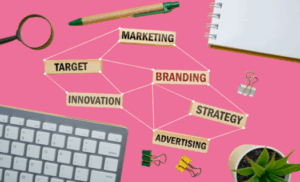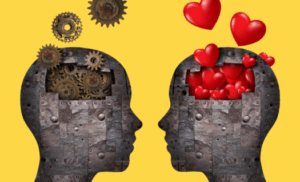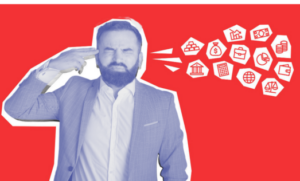The good thing about those who have screwed up is that they can no longer surprise you. You know what they are capable of. The opposite happens with the virtuous. When their dark side is revealed by expressing an unpopular opinion or showing themselves to be unscrupulous, they become a disappointment. What category do streamers who announce their departure to Andorra to pay less on their channels fall into? Are they villains true to their role? Are they icons that are twisted? They are still influencers, but that does not mean that they are a reference to certain values or specific ethics or morals.
In a mythical interview with Oprah Winfrey in January 2013, cycling legend Lance Armstrong acknowledged that he had been doping for years. And he had won his seven Tour de France, that way. Armstrong wasn’t just the biggest star in this sport. Until then, he was an icon, an example of self-improvement capable of surviving cancer and returning as an invincible champion. Armstrong earned the respect of the general public by setting up Livestrong, a foundation to raise money for cancer research. Nike gave him their full support, but withdrew completely when the cake was discovered.
Armstrong was an immeasurable cyclist, but Nike did not support him for that, but for the values that were associated with him: resilience, courage, social work, authenticity. He missed one of these and the building collapsed. His values were his truth and conditioned his profession. In fact, he was banned for life.
Armstrong was not an athlete, but an icon. If it could not be the latter, it did not serve as a reference
It goes without saying that Armstrong was one of many cases in which someone who promised one thing proved to be the opposite. His bad reputation sank him and no brand has wanted anthing to do with him again. Others, like the model Kate Moss or the golfer Tiger Woods, managed to return from hell. The first was caught consuming cocaine and the second was unfaithful to his wife. What difference was there? That none of their sins disqualified them from continuing to practice their profession. In addition, the mismanagement of their personal life and their personal brand did not lead them to brag about it. They took a deep breath, fixed things around them, and moved on. They became a reference point for self-improvement Some brands turned their backs on them (snorting coke is one thing), but others supported them (contrition and second chances are a solid value).
The value of influencers
Let’s go back to the streamers. In recent years, several of the best known and, therefore, the ones with the highest turnover, have headed for Andorra in order to pay less tax to the Treasury. Influencers in the world of entertainment with a focus on video games, they were and are references for many due to their cheek, skill, sense of humour and knowledge of the digital medium. Wanting to pay less tax does not disqualify them from continuing to work in their profession. Does it alter their personal brand? Yes, without a doubt. Does it change the values we associate with them? Only for some. And for the companies that relied on them? It changes everything.
El Rubius and TheGrefg will be neither the first nor the last professionals to leave for the Pyrenees. Spanish artists and sportsmen and women populate the principality’s census. What has been astonishing in the case of Rubén Doblas is the raw honesty with which he has told the story. As his friend Willyrex did some time ago, he was not shy about commenting on his decision in the middle of a broadcast, like someone talking in private with a group of friends. For him, it is not his fiscal solidarity that makes him where he is or what he is valued for in the market. Right with the first, wrong with the second.
On the tax consequences of moving to Andorra, I recommend this video by Ley & Desorden, which makes it quite clear that it is not so easy to try to pay taxes abroad when your centre of economic interests is in Spain. On the ethics of the decision and what it says about the person, I am left with this tweet (and the following ones) by Loulogio and this article by Javier San Román, editor of Grupo Control.
Referents or villains
David Martínez Pradales wrote on Twitter, more than influencers, we need references. The problem is that we tend to project onto those we admire our desire to be perfect people. None of us are. Rafa Nadal is an admirable sportsman, but I would like you not to insist on asking him about politics because I know I will end up being disappointed. Ibai Llanos may be an entertainer without equal in Spain, but if we force him to give his opinion on everything on his channels, perhaps one day he will get into a hole that will tarnish his personal brand.
The problem is that we tend to project onto those we admire our desire for them to be perfect people.
It’s a problem not understanding who you are and the repercussions of your behavior. Being a great professional in your field does not make you great in every way. I love tennis and admire the on-court skill of Australian Nick Kyrgios, but he does not serve as a champion of respect for his fellow players and an image of greatness on the circuit. Kyrgios is one of those villains who can’t let you down because he’s always been like that. The brands know what they are buying and he knows what character he is playing. The problem with some big youtubers, twitchers and streamers in general is that they don’t know they are brands. They are not all aware of what they are selling or to whom. Even worse. They do not know that they are playing the role of the villain and they insist on defending his ethics. That’s what we have the private domain for, really.
As brands, they represent values. Companies associate with them not only because of the scope they give them, but also because of their affinity with these values as a reinforcement of their reputation. Rubius may not care what we think of his decision. To his followers too. But it will not feel the same to the companies that rely on him. They have designed these profiles with more than just economic objectives in mind. They are looking for affinity, prestige and reputation.
Just as advertising on social media should be labelled as such, perhaps the content of each of us should carry an additional warning: “This is what I know about; for the rest, don’t pay much attention to me”.

